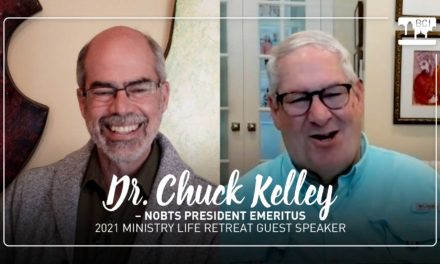There are obviously many who have a distorted view of church. These views range from defining church as a building to limiting its definition to a worship service on Sunday morning. The word “church” comes from the Greek word ekklesia which is defined as “called-out ones.” The root meaning of “church” is in reference to people. That is, specifically, people who are followers of Christ. Romans 16:5 says “… greet the church that is in their house.” In essence, Paul refers to the church as a body of believers. In addition, as Paul explains in Ephesians 1:22-23, the church is the body of Christ and He is the head.
Matthew clearly records Jesus statement about the church in response to Peter’s confession. “Mt 16:18 And I tell you that you are Peter, and on this rock I will build my church, and the gates of Hades will not overcome it.” There are four things that are clear from this one sentence: 1) Jesus initiated the church 2) the church belongs to Jesus 3) Jesus builds the church and 4) the church Jesus builds will be victorious.
We can learn a lot about the practice of the early church by reading and studying the book of Acts. I am encouraged by their devotion, character and reputation. Let’s review the specific passage from Acts 2 as follows:
AC 2:41 Those who accepted his message were baptized, and about three thousand were added to their number that day.42 They devoted themselves to the apostles’ teaching and to the fellowship, to the breaking of bread and to prayer. 43 Everyone was filled with awe, and many wonders and miraculous signs were done by the apostles. 44 All the believers were together and had everything in common. 45 Selling their possessions and goods, they gave to anyone as he had need. 46 Every day they continued to meet together in the temple courts. They broke bread in their homes and ate together with glad and sincere hearts, 47 praising God and enjoying the favor of all the people. And the Lord added to their number daily those who were being saved.
1. Devotion
The early church was devoted to the apostles’ teachings, the fellowship, breaking of bread and prayer. Devotion means that they had a “single-minded” focus on these activities.
The apostles’ teachings is what we now know as largely the New Testament. Being devoted to knowing and living the teachings in the Bible are critical for spiritual growth.
The word fellowship comes from the Greek word koinonia. Its primary meaning is “fellowship, sharing in common, communion.” Believers in Christ are to come together in love, faith, and encouragement which is the essence of koinonia. By studying the phrase “one another” in the New Testament, you will gain a true perspective on what fellowship truly means. Fellowship in the New Testament stands in stark contrast to the void we see among Christian people today. Sadly, we simply don’t have time for one another and we don’t know one another. In fact, we aren’t even remotely tolerant of one another in many cases. In several churches, fighting and quitting seems to be the main attraction. It is time, for the love of Jesus and His church, that we need come to grips with the fact that people are messy and relationships are messy. The result of having a void of fellowship has impacted every area of ministry in the church. Most tragically, it has stifled discipleship. After all, you can’t be a disciple who is making disciples without intersecting, investing and inviting. At a minimum, discipleship demands an investment of time and interest in the lives of other people.
Breaking of bread is referring to the Lord’s Supper. Since Jesus instituted the Lord’s Supper as a way of remembering His sacrifice on the cross, it seems it should be a significant part of our worship. Unfortunately, for many, it has turned into a mindless religious ritual. Being devoted to the Lord’s Supper means we understand its meaning and we take it seriously and with reverence.
Prayer is simply communicating with God. If we are going to be devoted to prayer it needs to be a significant part of our lives individually and collectively. All in all, people who understand that they are completely dependent on God sense the importance of prayer and act accordingly.
2. Character
After reading Acts 2:42-47 it is obvious that this community of believers has great character. The two aspects of their character that stand out include love and charity. I’m involved with coaching and mentoring a few men. We are going through Operation Timothy together. As we’ve gone through this study, I’ve become keenly aware that character is more than honesty and integrity. It certainly includes these facets but love seems to be the key ingredient. Unfortunately, love is often a missing quality of our definition of character. As you can see from the following three verses of scripture, our love for God, neighbors and other Christians should be sharply distinguishable. You will also discover that love and obedience are linked together. Obedience to God always follows our love for Him.
MT 22:37 Jesus replied: ” `Love the Lord your God with all your heart and with all your soul and with all your mind.’ 38 This is the first and greatest commandment. 39 And the second is like it: `Love your neighbor as yourself.’
JN 13:35 By this all men will know that you are my disciples, if you love one another.”
JN 14:15 “If you love me, you will obey what I command.
The charity of the Acts church is also admirable. Simply, if someone had too much and someone else didn’t have enough, the one that had too much sold some of their things to meet the needs of those who lacked. The church has a duty to make sure people have food, shelter and clothing and to protect the most vulnerable in our society.
MT 25:34 “Then the King will say to those on his right, `Come, you who are blessed by my Father; take your inheritance, the kingdom prepared for you since the creation of the world.35 For I was hungry and you gave me something to eat, I was thirsty and you gave me something to drink, I was a stranger and you invited me in, 36 I needed clothes and you clothed me, I was sick and you looked after me, I was in prison and you came to visit me.’
3. Reputation
Notice what is stated in Acts 2:47, “enjoying the favor of all the people.” This means that they were making an impact in their community. Their community was finding favor with them because they were authentic, loving and generous. This meant they had to be visible and serving in the community. This also meant that these Christians were living what they believed. We must be Christians 24 hours a day, 7 days a week. Christianity is not a lifestyle limited to an hour on Sunday morning. It is completely surrendering your life to Christ and for His cause.
We can obviously learn from the great New Testament church described in Acts 2. A good start to relearning church begins with examining our devotion, character and reputation. As I read the Great Commission in Matthew 28:18-20, “go and make disciples of all nations,” one the one hand, I can’t imagine our church truly obeying Jesus without the foundations of devotion, character and reputation as we see in Acts 2:41-47. On the other hand, I can’t imagine people who have the devotion, character and reputation of the Acts 2 church who haven’t been intentionally and relationally discipled. They just seem to go together in a symbiotic way. I challenge you to join me in relearning the definition and practice of the church. We need to unlearn the dead-end religious and cultural practices that are untethered to scripture and relearn, as well as practice, the Biblical church.
At Heartland, our two foundational disciple-making ministries are Life2Life and Shared Life. Life2Life is one-on-one Biblically-based mentoring and coaching. Shared Life is our small group style ministry. These two ministries are centered on helping Christians to become disciples who can make disciples. These ministries are designed to be intentional, relational and reproducible with the purpose of obeying the Great Commission. Yes, they help us develop devotion, character and reputation.








